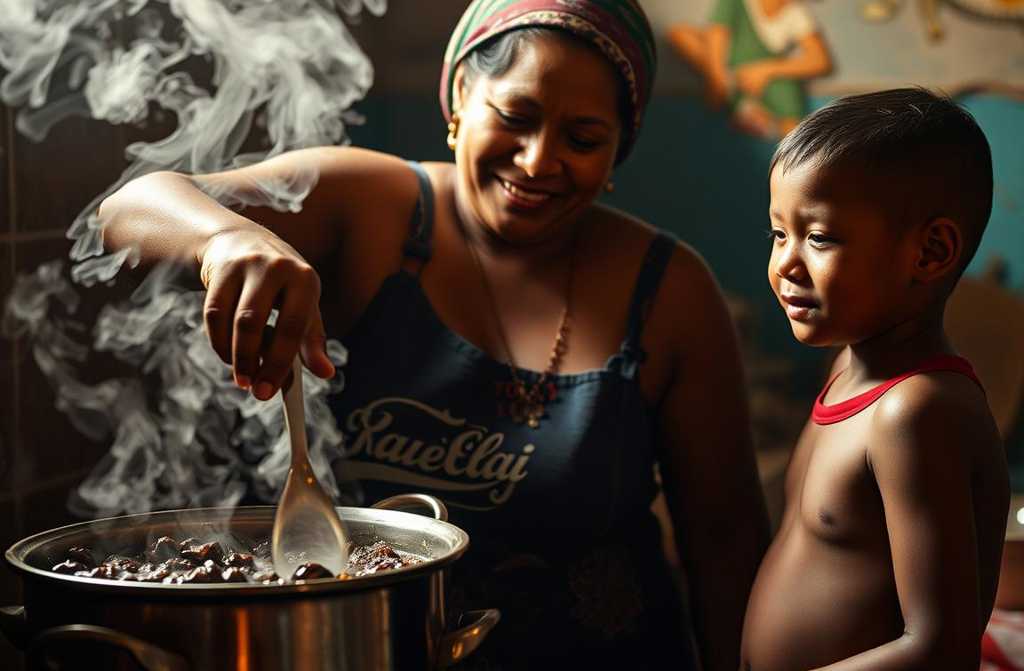З життя
In Rio de Janeiro, in one of those neighborhoods where electric wires twist above the streets like the city’s veins, lived Mariana.

In the heart of London, where cobbled streets wound like veins beneath a tangle of telephone wires, lived Eleanor Whitmore. She was a woman who could juggle three children, two jobs, and an ancient gas stove that groaned under the weight of her battered silver potthe beating heart of her home. Every Sunday, no matter how exhausting the week had been, she cooked a proper roast: beef, Yorkshire puddings, carrots glazed with honey, and potatoes crisped to perfection. It wasnt just a meal. It was a ritual of survival, an act of love, a reminder to herself and her children that even in the darkest times, the fire inside them still burned.
“Mum,” asked William, her eldest, one morning, “why do you cook so much when were barely making ends meet?”
Eleanor wiped her hands on her apron and looked at him. “Because when you cook, you remember theres still warmth in your heart. That the fire inside you hasnt gone out. And no one can take that from you.”
But their street wasnt just a place of laughter and joyit was also a place of injustice. One afternoon, as William walked home from school, police officers stopped him. They arrested him. His face, his hoodie, the colour of his skinthat was all it took. No evidence, no witnesses, just suspicion that weighed heavier than truth.
Eleanor nearly collapsed. She sold her old mobile, scraped together every last pound from her savings, and hired a solicitor. The trial was swift and brutalsterile walls, stern faces, cold legal jargon.
“There is no conclusive evidence,” the magistrate said, “but the circumstances are against him.”
At that moment, the solicitor requested “a different kind of proof.” She nodded at Eleanor.
Eleanor walked into the courtroom carrying her massive, steaming pot, the rich scent of roast beef and thyme filling the air.
“Your Honour,” she said, steady but firm, “this is Sunday roast. Ive been cooking since five this morning. My son couldnt have done what they sayhe was peeling potatoes, whisking batter, tasting the gravy to see if it needed more salt.”
The room fell silent. A few people chuckled, but it was nervous, not mocking. The aroma filled the spacedeep, honest, unmistakable.
The magistrate leaned forward, lifted the lid, inhaled, and took a bite. Then another. He closed his eyes and said nothing.
“And how is this evidence?” he asked quietly when he finally looked up.
“Its the only kind I have,” Eleanor answered. “The taste of a life built on whats real. Not words or accusations, but actions and love.”
The magistrate took another bite, then murmured, “Sometimes the truth is served hot.”
William was acquitted. Not with paperwork, not with legal arguments, but with the undeniable truth of a mothers loveturning a simple meal into irrefutable proof.
From that day on, Eleanor refused to stop there. She opened a small pub in her neighbourhood. Its name”Justice and Gravy”said it all. She cooked for neighbours, for friends, for anyone who needed a hot meal and a bit of warmth. On the wall, painted in her own hand, were the words:
*Not everything is proved with paper. Some innocence smells like fresh roast.*
The pub became more than just a place to eat. It was a symbol of truth, resilience, and the power one woman could wield with nothing but a big pot and an even bigger heart. Eleanors children grew up watching their mothers love defy injustice, learning that taste and scent could be stronger than legal documents.
She taught William and his younger siblings something vital: real justice begins where care, courage, and action meet. And she taught them that the most powerful proof isnt wordsits deeds.
Now, when new customers walk into her pub, she always says, “Sit down, have a plate. We dont just serve roast here. We serve the truth.”
And so, in the heart of London, beneath the tangled wires and between the rows of terraced houses, Eleanor keeps doing what she does bestfeeding hearts, saving lives from injustice, and reminding everyone that sometimes, the strongest proof smells like a freshly cooked Sunday roast.

















